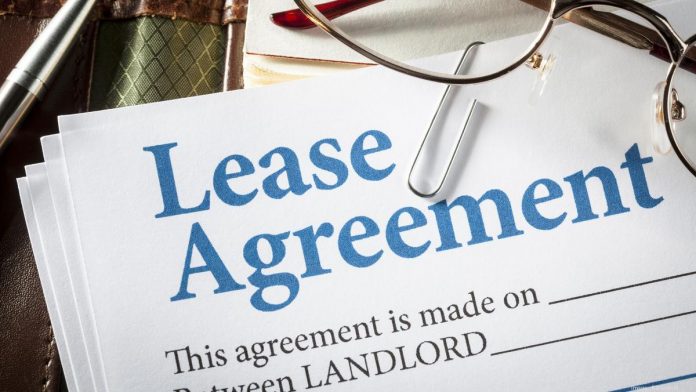This article is written by Anusha Misra from NALSAR University of Law. This article evaluates the significance of time in the registration of a lease.
Table of Contents
Introduction
A lease agreement is a legal contract designed to protect both the person leasing the asset (“lessee”) and the owner of the asset (“lessor”).
Registration is the process by virtue of which parties execute a lease deed and present it for registration at the office of the sub-registrar. The office of the sub-registrar must be located within the sub-district of the property to which the lease deed is situated. The sub-registrar endorses the signature of each individual involved in the process of executing the deed. In addition to this, the sub-registrar records the lease deed details on either a book or an electronic medium.
When entering into a lease deed a question that comes across most parties is whether registration of a lease deed is mandatory and the essence or importance of time in the registration of a lease.
When does a lease agreement require stamp duty?
For the execution of any lease agreement, stamp duty needs to be paid according to the manner put forth by the relevant stamp laws of the state where the property is located. As stamp duty falls under the ambit of the ‘state list’ the stamp duty may vary from state to state. Generally, stamp duty is chargeable on the basis of the tenure of the lease, the amounts of rent, premium or any other form of rent and premium which may be mentioned in the lease agreement proposed to be executed. The minimum rates to be imposed for stamp duties have also been established by the respective state governments. In these states, one is mandated to pay stamp duty on whatever asset is higher. For long term leases, stamp duty can be charged on par with the sale of the property in question. Stamp duty is payable compulsorily on assets mentioned in the Stamp Act schedules of various states unless particularly exempted by the established authority.
Statutory mandates for the registration of lease
The laws governing or regulating the registration of lease deeds are the Registration Act, 1908 and the Transfer of Property Act, 1882.
Section 17 of the Registration Act, 1908
Section 17(1)(d) of the Registration Act mandates registration is of lease deeds when an immovable property is leased –
- From year to year,
- For any term exceeding one year, or
- Reserving a yearly rent.
The Supreme Court however recently in the case of Siri Chand v. Surinder Singh (2020), held that a lease agreement does not require compulsory registration under Section 17 (1) (d) of the Act if it does not mention a period of the lease.
Section 107 – Transfer of Property Act, 1882
Section 107 of the Transfer of Property Act states that leases pertaining to immovable property may be created through either a registered instrument by virtue of a verbal agreement along with the delivery of its possession.
Section 18(c) – Registration Act
Section 18(c) of the Registration Act exempts a lease deed granting a lease for any term less than 1 year from compulsory registration.
Period within which lease is to be registered
Section 23 of the Registration Act imparts a time period of 4 months from the date of execution of presenting the document for registration before the established authority. The competent authority is enabled to take no notice of such delay (not exceeding four months from the expiration of the aforesaid time period) on the premise of an incident that is not avoidable or an urgent necessity. In cases like this, the party which is in the delay is mandated to pay a fine not more than ten times the amount of the actual registration fee.
Duration of lease
Section 106 of the Transfer of Property Act states that when there is no written contract or local law or usage, a lease of immovable property, excluding agricultural and manufacturing, shall be a lease from month to month, terminable, on the part of either lessor or lessee, by 15 days’ notice.
If any person claims that the lease was for a fixed term or to be a yearly lease instead of a lease from month to month, they have to provide legal, valid and reliable evidence. In Punjab National Bank v. Ganga Narain Kapur (1993), it was held that it is the onus of the defendant to prove the contrary claim regarding the lease.
Effects of non-registration
The Registration Act and Transfer of Property Act lay down what the effects of non-registration of lease deeds that are required to be registered are.
The Registration Act,1908
The Registration Act mandates that an unregistered lease deed cannot (i) affect any immovable property or, (ii) be received as evidence of any transaction affecting such property.
Section 49 of the Registration Act puts forth the consequences of non-registration of documents, which are required to be registered mandatorily. Section 49 lays down the fact that non-registration of the property will cease to have any effect on immovable property. Lease deeds of this manner will not be considered as evidence of any transaction affecting such property. However, there are certain limited purposes: evidence of a contract in a suit for specific enforcement; and as evidence of any collateral transaction that is not necessary to be affected by a registered instrument.
In Atluru Saraswatamma v. Atluru Paddayya and Ors (1922), it was clarified that the importance of “affect any immovable property” and the term ‘affect’ was held to be an inclusive term. Thus, assuming a lease deed that is to be registered isn’t then the lease deed will not establish a leasehold directly for the lessee. The Hon’ble Supreme Court in K.B Saha And Sons Private Limited v. Development Consultant Limited (2008) held that:
- An unregistered document is not accepted as evidence;
- An unregistered document can be used as evidence of collateral purpose under Section 49 of the Registration Act in certain cases;
- A collateral transaction must be void of the transaction to effect which the law mandated registration;
- A collateral transaction has to be a transaction that irrespective of whether the document is registered or not is unaffected;
- If a document is inadmissible in evidence for lack of registration, none of its terms can be admitted in evidence.
In Bharat Petroleum Corporation Ltd. v. Khaja Midhat Noor & Ors (1988), the Supreme Court stated that a lease for a period of more than one year can be created only by a registered instrument. If there is no registration then the lease shall be a month-to-month lease.
Hence, it is established that a lease exceeding the period of 1 year can only be validated by virtue of a registered instrument. There can however be an assumption as to the existence of the lease based on the conduct of the party. Such assumptions will be administered and regulated by the provisions laid down by the Transfer of Property Act. Such leases will be valid on a monthly basis that can be declared as terminated by either party with fifteen days’ notice.
Presumption of lease
Presumption of the existence of a lease can be made from the actions of the party (delivery of possession, payment of rent, etc.).
In Anthony v. KC Ittoop and Sons and Others (2000), the Supreme Court had looked into whether an unregistered lease deed leads to the creation of a lease. The Court held that an unregistered instrument cannot create a contractual lease but that the existence of a lease can be presumed from the conduct of the parties.
This was reiterated in Park Street Properties (Pvt.) Ltd. v. Dipak Kumar Singh and Ors (2016), where it was held that in the absence of registration, a month-to-month lease is created which is governed by section 106 of TOPA.
Unregistered lease deed as proof during a court of law – exceptions provided underneath the law
The stipulation to Section 49 of the Registration Act sets out 2 exceptions whereby associate degree unregistered lease deed are often received as proof –
- Wherever it’s received as proof of a consent a suit for carrying out underneath the particular Specific Relief Act, 1877;
- Wherever it’s received as proof of any collateral dealings not needed to be stricken by a registered instrument.
For the primary exception, wherever one-party declines to seem before the sub-registrar for registration of the lease deed, the opposite party could use the unregistered lease deed as proof before a court to hunt associate degree order directional the primary party to seem before the sub-registrar for registration.
For the second exception, “collateral transaction” suggests that any purpose aside from the aim that a registered document is employed. For instance, an associate degree unregistered lease deed is often to confirm the aim of leasing (commercial or residential), the relationship between the parties, the date of taking the property in possession however to not prove the terms of the lease like period, right to sublease, etc. The courts have additional control that if a document is inadmissible conspicuous for wish of registration, then none of its terms is often admitted conspicuous, and exploitation of such a document for the aim of proving a crucial clause wouldn’t be exploitation of it as a collateral purpose.
Arbitration clauses underneath a lease deed
As established earlier, the written agreement terms explicit in associate degree unregistered lease deed for a term extraordinary one year cannot be relied on by the parties because the lease deed is going to be void. In SMS Tea Estates personal restricted v. Chandmari Tea Company personal restricted, (2011), the Supreme Court held that the arbitration agreement within the lease deed may be a collateral term concerning the resolution of disputes and freelance of the opposite terms of the contract. However, the arbitrator would not rely on a lease deed that is unregistered to enforce any of the terms and conditions except as evidence of a contract in a claim for specific performance, or evidence of any collateral transaction which does not specifically require registration.
Conclusion
Leases pertaining to immovable property with a term of more than one year are required to be registered at the earliest irrespective of the four-month window put forth by the law. In accordance with the principles laid down by the Transfer of Property Act, these kinds of leases come into effect only when registered. However, if there has been a delivery of possession, payment and acceptance of rent, the lease will be assumed to be one between the parties on a month-to-month basis, which can be terminated by giving a 15-day notice.
As laid down earlier, the importance of registering lease deeds cannot be unwarranted. Quite often, to avoid wasting stamping and registration prices, parties decide to not register their lease deeds. However, just in case a dispute arises, parties won’t be ready to trust the unregistered lease deed on account of it being void. In addition to this, within the absence of a registered lease deed, the lease (in cases wherever there has been the delivery of possession and payment of rent) is deemed to air on a month-to-month basis that may be terminated by giving fifteen days’ notice. Given all the legal problems that stem from unregistered lease deeds, parties ought to register their lease deeds if the connection is for a year or exceeds a year.
References
- https://corporate.cyrilamarchandblogs.com/2021/02/time-is-of-the-essence-for-registration-of-a-lease/#_ftn6
- https://www.mondaq.com/india/landlord-tenant–leases/517134/stamping-and-registration-of-lease-agreements-an-insight-on-defaults
- https://indiacorplaw.in/2018/12/better-safe-sorry-importance-registering-lease-deeds.html#_ftn1
LawSikho has created a telegram group for exchanging legal knowledge, referrals, and various opportunities. You can click on this link and join:
 Serato DJ Crack 2025Serato DJ PRO Crack
Serato DJ Crack 2025Serato DJ PRO Crack











 Allow notifications
Allow notifications


